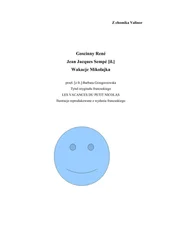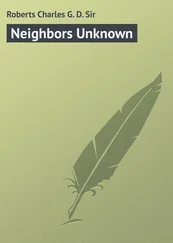Charles Fairbanks - My Unknown Chum - Aguecheek
Здесь есть возможность читать онлайн «Charles Fairbanks - My Unknown Chum - Aguecheek» — ознакомительный отрывок электронной книги совершенно бесплатно, а после прочтения отрывка купить полную версию. В некоторых случаях можно слушать аудио, скачать через торрент в формате fb2 и присутствует краткое содержание. Жанр: foreign_antique, foreign_prose, essays, на английском языке. Описание произведения, (предисловие) а так же отзывы посетителей доступны на портале библиотеки ЛибКат.
- Название:My Unknown Chum: Aguecheek
- Автор:
- Жанр:
- Год:неизвестен
- ISBN:нет данных
- Рейтинг книги:4 / 5. Голосов: 1
-
Избранное:Добавить в избранное
- Отзывы:
-
Ваша оценка:
- 80
- 1
- 2
- 3
- 4
- 5
My Unknown Chum: Aguecheek: краткое содержание, описание и аннотация
Предлагаем к чтению аннотацию, описание, краткое содержание или предисловие (зависит от того, что написал сам автор книги «My Unknown Chum: Aguecheek»). Если вы не нашли необходимую информацию о книге — напишите в комментариях, мы постараемся отыскать её.
My Unknown Chum: Aguecheek — читать онлайн ознакомительный отрывок
Ниже представлен текст книги, разбитый по страницам. Система сохранения места последней прочитанной страницы, позволяет с удобством читать онлайн бесплатно книгу «My Unknown Chum: Aguecheek», без необходимости каждый раз заново искать на чём Вы остановились. Поставьте закладку, и сможете в любой момент перейти на страницу, на которой закончили чтение.
Интервал:
Закладка:
Perhaps some may think, from what I have said in the commencement of this letter, that my enthusiasm has blinded me to those great moral and social evils which are apparent in English civilization; but it is not so. I love England rather for what she has been than for what she is; I love the England of Alfred and St. Edward; and when I contrast the present state with what it might have been under a succession of such rulers, I cannot but grieve. Truly the court of St. James under Victoria is not what it was under Charles II., nor even under Mr. Thackeray's favourite hero, "the great George IV.," – but are not St. James and St. Giles farther apart than ever before? Is not Lazarus looked upon as a nuisance, which legislation ought, for decency's sake, to put out of the way? What does England do for the poor? Nothing; absolutely nothing, if you except a system of workhouses, compared with which prisons are delightful residences, and which seems to have been intended more for the punishment of poverty than as a work of charity. No; on the contrary, she discountenances works of charity; when a few earnest men among the clergy of her divided church make an effort in that direction, there is an outcry, and they must be put down; and their bishops, whose annual incomes are larger than the whole treasury of Alfred, admonish them to beware how they thus imitate the superstitions of the middle ages. No; your Englishman of the present day has something better to do than to look after the beggar at his doorstep; he is too respectable a man for that; he pays his "poor rates," and the police must order the thing of shreds and patches to "move on"; his progress must not be impeded, for his presence is required at a meeting of the friends of Poland, or of Italy, or of a society for the abolition of American slavery, and he has no time to waste on such common, every-day matters as the improvement of the miserable wretches who work his coal mines, or of those quarters of the town where vice parades its deformity with exulting pride, and the air is heavy with pestilence. There is proportionably more beggary in London at this hour than in any continental city. And such beggary! Not the comfortable, jolly-looking beggars you may see in Rome or Naples, who know that charity is enjoined upon the people as a religious duty, but the thin, pallid, high-cheeked supplicants, whose look is a petition which tells a more effective story than words can frame of destitution and starvation.
But there is another phase of this part of London life, sadder by far than that of mere poverty. It is an evil which no attempt is made to prevent, and so great an evil that its very mention is forbidden by the spirit of this age of "superficial morality and skin-deep propriety." I pity the man who can walk through Regent Street or the Strand in the evening, unsaddened by what he shall see on every side. How ridiculous do our boasts of this Christian nineteenth century seem there! Here is this mighty Anglo-Saxon race, which can build steam engines, and telegraphs, and clipper ships, which tunnels mountains, and exerts an almost incredible mastery over the forces of nature, – and yet, when Magdalene looks up to it for a merciful hand to lift her from degradation and sin, she finds it either deaf or powerless. There is a work yet to be done in London which would stagger a philanthropist, if he were gifted with thrice the heroism, and patience, and self-forgetfulness of a St. Vincent of Paul.
I cannot resist the inclination to give in this connection a passage from the personal experience of a friend in London, which, had I read it in any book or newspaper, I should have hesitated to believe. One evening, as he was passing along Pall Mall, he was addressed by a young woman, who, when she saw that he was going to pass on and take no notice of her, ran before him, and said in a tone of the most pathetic earnestness, —
"Well, if you'll not go with me, for God's sake, sir, give me a trifle to buy bread!"
Thus appealed to, and somewhat shaken by the voice and manner, he stopped under a gaslight, and looked at the speaker. Vice had not impressed its distinctive seal so strongly upon her as upon most of the unfortunate creatures one meets in London's streets; indeed, there was a shade of melancholy on her face which harmonized well with her voice and manner. So my friend resolved to have a few words more with her, and buttoning up his coat, to protect his watch and purse, he told her that he feared she wanted money to buy gin rather than bread. She assured him that it was not so, but that she wished to buy food for her little child, a girl of two or three years. Then he asked how she could lead such a life, if she had a child growing up, upon whom her example would have such an influence; and she said that she would gladly take up with an honest occupation, if she could find one, – indeed, she did try to earn enough for the daily wants of herself and child with her needle, but it was impossible, – and her only choice was between starvation and the street. At that time she said that she was learning the trade of a dressmaker, and she hoped that before long she should be able to keep herself above absolute necessity. Encouraged by a kind word from my friend, she went on in a simple, womanly manner, and told him of her whole career. It was the old story of plighted troth, betrayed affection, and flight from her village home, to escape the shame and reproach she would there be visited with. She arrived in London without money, without friends, without employment, – without any thing save that natural womanly self-respect which had received such a severe blow: – necessity stared her in the face, and she sank before it. My friend was impressed by the recital of her misfortunes, and thinking that she must be sincere, he took a sovereign from his purse and gave it to her. She looked from the gift to the giver, and thanked him again and again. He continued his walk, but had not gone more than three or four rods, when she came running after him, and reiterated her expressions of thankfulness with a trembling voice. He then walked on, and crossed over to the front of the Church of St. Martin, (that glorious soldier who with his sword divided his cloak with the beggar,) when she came after him yet again, and seizing hold of his hand, she looked up at him with streaming eyes, and said, holding the sovereign in her hand, —
"God bless you, sir, again and again for your kindness to me! Pray pardon me, sir, for troubling you so much – but – but – perhaps you meant to give me a shilling, sir, – perhaps you don't know that you gave me a sovereign."
How many models of propriety and respectability in every rank of life, – how many persons who have the technical language of religion constantly on their lips, – how many of those who, nurtured amid the influences of a good home, have never really known what temptation is, – how many such persons are there who might learn a startling lesson from this fallen woman, whom they seem to consider themselves religiously bound to despise and neglect! I have a great dread of these severely virtuous people, who are so superior to all human frailty that they cannot afford a kind word to those who have not the good fortune to be impeccable. But we all of us, I fear, need to be reminded of Burns's lines —
"What's done we partly may compute,
But know not what's resisted."
If we thought of this, keeping our own weaknesses in view, which of us would not shrink from judging uncharitably, or casting the first stone at an erring fellow-creature? Which of us would dare to condemn the poor girl who preserved so much of the spirit of honesty in her degradation, and to commend the negative virtues which make up so many of what the world calls good lives?
ANTWERP AND BRUSSELS
Интервал:
Закладка:
Похожие книги на «My Unknown Chum: Aguecheek»
Представляем Вашему вниманию похожие книги на «My Unknown Chum: Aguecheek» списком для выбора. Мы отобрали схожую по названию и смыслу литературу в надежде предоставить читателям больше вариантов отыскать новые, интересные, ещё непрочитанные произведения.
Обсуждение, отзывы о книге «My Unknown Chum: Aguecheek» и просто собственные мнения читателей. Оставьте ваши комментарии, напишите, что Вы думаете о произведении, его смысле или главных героях. Укажите что конкретно понравилось, а что нет, и почему Вы так считаете.








